Wang Ziru and Luo Yonghao: AI Entrepreneurs in a New Era
![]() 06/09 2025
06/09 2025
![]() 627
627
A New Frontier in Tech?
It's like a rebirth. After a decade of fierce competition in the smartphone industry, two trailblazers are now poised to seize the AI revolution's historical moment.
On June 6, 2025, Wang Ziru renamed his online account to 'Wang Ziru AI' and released a video. In it, he reflected on his journey and officially announced his new venture as an AI content creator and evaluator. While the video didn't divulge specifics, merely hinting at starting an AI content business and using AI to accelerate industry digital transformation, it swiftly garnered widespread attention and discussion within China's tech community.
Some mocked, while others cheered, "The prodigy is back."
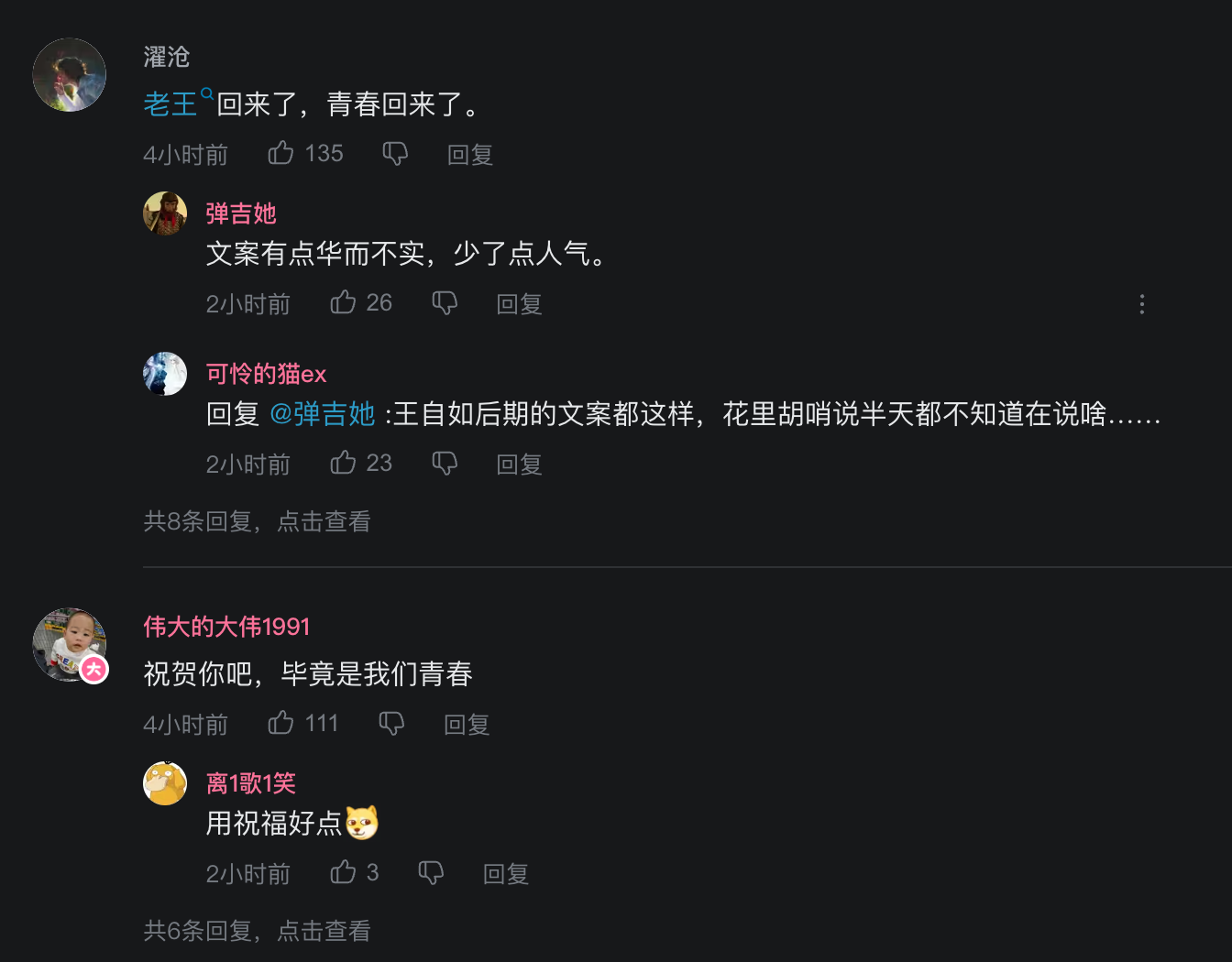
Image/Bilibili
Given his controversial status in the mobile phone industry, this isn't surprising. However, Wang Ziru undeniably stands as a landmark figure in domestic 'mobile phone evaluation,' even arguably the pioneer of early domestic mobile phone reviews. Today, Wang Ziru's influence and relevance remain significant, largely due to the 'first Internet battle' 11 years ago and his long-time rival, Luo Yonghao.
Intriguingly, while Wang Ziru chose AI content entrepreneurship, Luo Yonghao opted for AI product entrepreneurship.
In 2022, Luo Yonghao stepped down from managing 'Be Your Friend' and founded AR startup Thin Red Line Technology. However, in January this year, Lei Tech reported and reviewed Thin Red Line's first AI product for overseas markets - J1 Assistant AI APP. Almost simultaneously, Thin Red Line was dismantling its entire hardware team, with subsequent spring recruitment focused solely on AI and commercialization roles.
As Wang Ziru noted in his video, "All your growth comes from riding trends. Without a major event, your efforts are inconsequential."
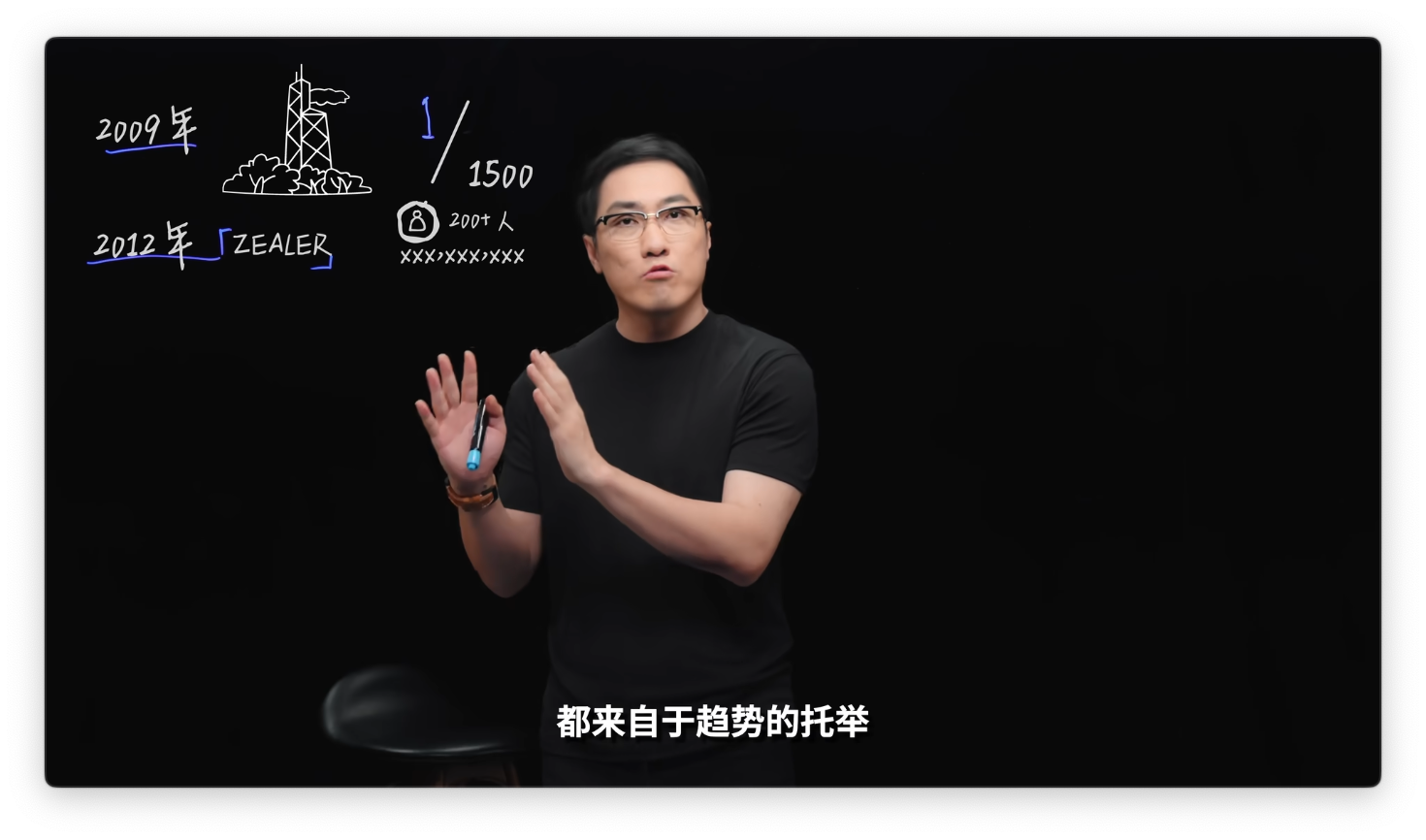
Image/Wang Ziru AI
Both Luo Yonghao and Wang Ziru have been chasing the tide, from smartphones a decade ago to AI today. Wang Ziru aims to continue evaluating, while Luo Yonghao strives to create products.
Times have changed, but will the 'eternal' verbal war from 11 years ago reignite?
A Decade of Reviews, No Universal Cure
In 2025, Wang Ziru and Luo Yonghao haven't crossed paths yet, but in 2014, they starred in a smartphone-era 'debate' still talked about in tech circles.
That year, Smartisan Technology released the Smartisan T1, Luo Yonghao's personally overseen and highly anticipated debut phone. Amidst widespread discussion, Wang Ziru's ZEALER released a review video pointing out multiple flaws, including screen fitting, system animation, and craftsmanship. The video stirred up a storm - Hammer fans condemned the unfairness, and Hammer Technology publicly questioned ZEALER's review conclusions.
Soon after, the tech world witnessed an unprecedented live debate. Wang Ziru accepted Luo Yonghao's invitation for a over three-hour live debate on Youku, focusing on whether the Smartisan T1 had major design flaws and whether ZEALER's review was professional and fair. Luo Yonghao dominated both on and off the stage, as netizens commented:
"It's like training a son."
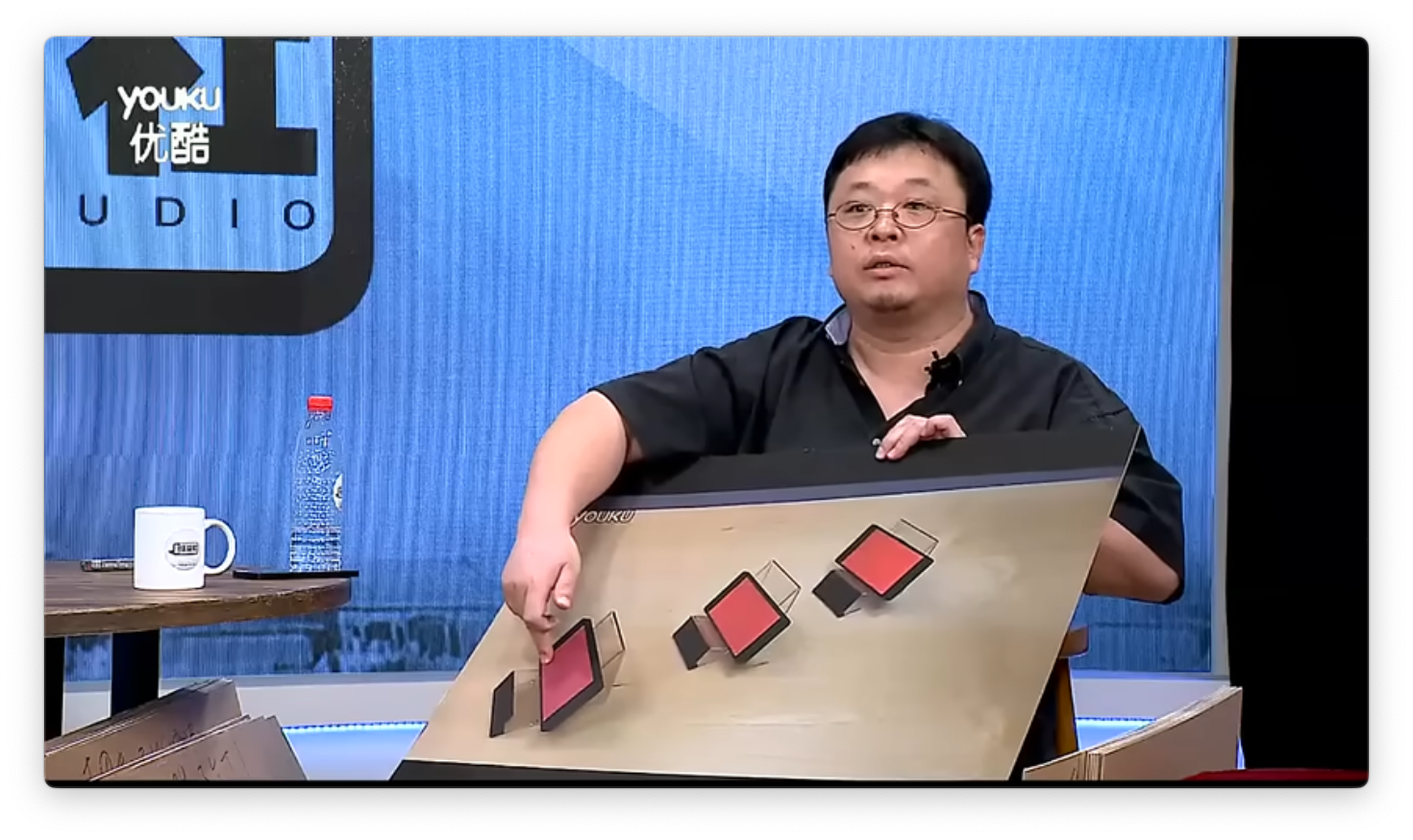
Image/Youku
Beyond the results, this debate centered on technical details and positions, revealing the inherent tension between product creators and reviewers.
During the live broadcast, Luo Yonghao repeatedly questioned 'evaluation standards,' the openness and transparency of the process, and suspicions of exaggerated defects. Wang Ziru tried to justify his consumer-centric approach but struggled under Luo Yonghao's 'on-the-spot rebuttals,' often losing ground in data details and testing methods.
Luo Yonghao also questioned ZEALER's business model, noting investment from Lei Jun's Shunwei Capital and advertising cooperation with phone manufacturers, raising questions about impartiality. Despite Wang Ziru's assertions that 'taking investment doesn't mean losing independence,' Luo Yonghao's "Don't talk about personality independence if you're kept!" left Wang Ziru lacking confidence.
For Luo Yonghao, the Smartisan T1 was his baby, and he cared deeply about its concept and design being understood. Wang Ziru's evaluation perspective, emphasizing objective performance and user experience, naturally clashed with the product creator's vision. Essentially, it was a collision between 'product vision' and 'user experience standards.'
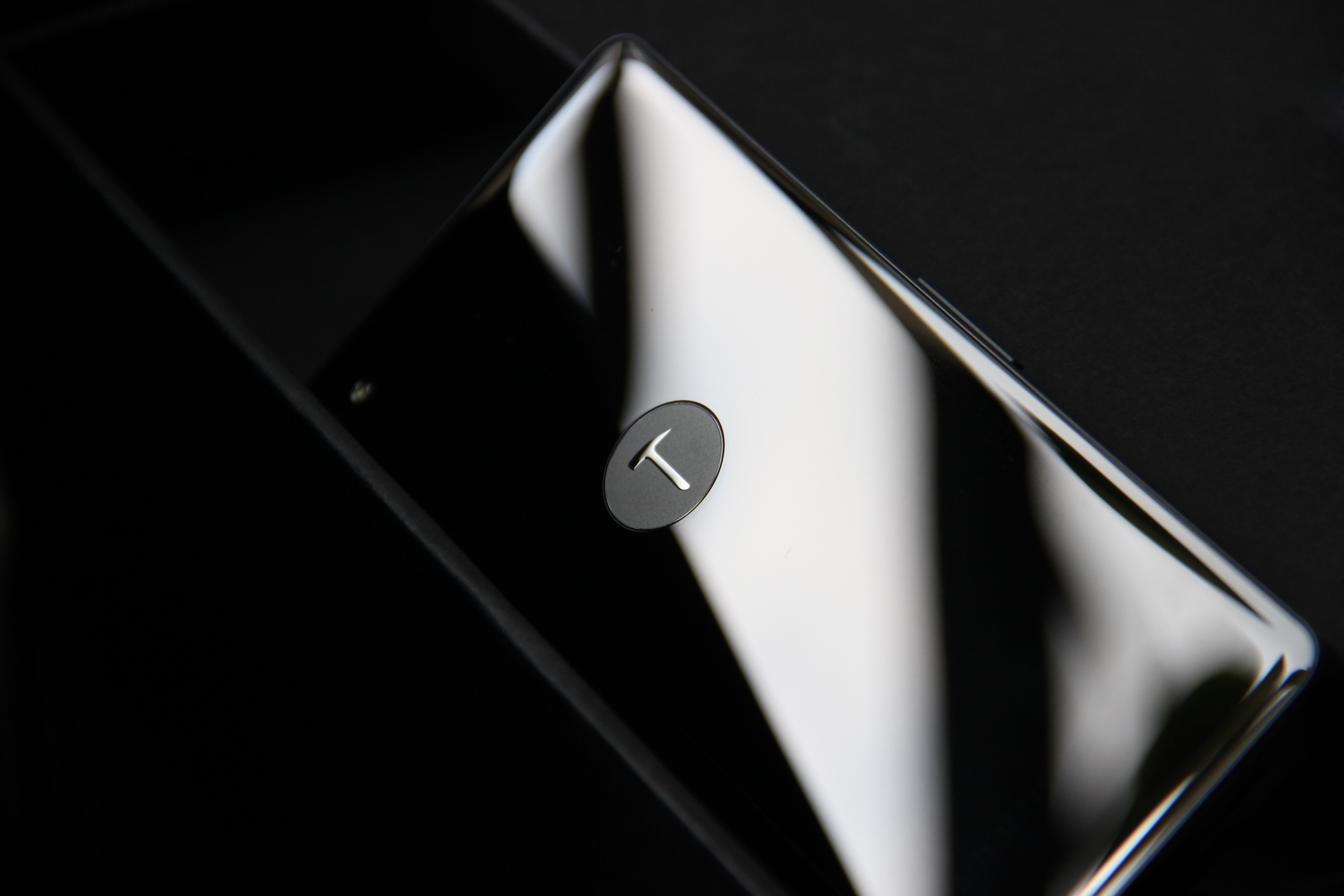
Image/Smartisan Technology
Frankly, these issues remain unresolved, with 'taking money from manufacturers' still controversial in product reviews. But a decade has passed, bringing changes - users now rationally view sponsored content and appreciate transparent reviews; evaluators are more open about processes and standards, earning user trust; product creators are more receptive to cooperative reviews, allowing diverse opinions.
Not to mention other media and bloggers, Lei Tech itself has been producing product experience and review content, including hardware and software, and was one of the first domestic tech media to experience and report on ChatGPT in late 2022. In recent years, Lei Tech has promoted standardization and transparency in reviews, such as battery life test models and sample image comparisons.
In summary, Luo Yonghao and Wang Ziru remain the same, but the review ecosystem has significantly evolved since their debate. Now, amidst the AI application explosion, new AI products emerge daily, and countless products are shifting to AI-driven models.
This is the opportunity Wang Ziru sees - with numerous products but limited user attention, there's value in media and bloggers' AI (product) experience and reviews. However, AI reviews still face old and new challenges.
AI Reviews: A New Live Debate?
From AI assistants to various apps, AI phones, PCs, headphones, and glasses, too many products and interactions are undergoing 'AI reshaping.' Behind this innovative surge lies a typical consumer mindset: "You all boast, but which is best?"
However, AI's complexity makes evaluation far more difficult. AI reviews are arguably the hardest to standardize today. Large language models' principles mean outputs are highly uncertain. The same product and test prompts might yield vastly different results over three days. Moreover, models' 'intelligence degradation' is a significant issue.
This doesn't even account for users' usage habits and data. For instance, ChatGPT introduced 'memory' this February, potentially outputting different results based on different users' understanding and memory.

Image/OpenAI
The AI industry's entrepreneurial boom is accompanied by massive capital inflows, with major large model manufacturers and AI companies fiercely competing for user mindshare. Media and content platforms are experiencing a new wave of soft advertising, increasing the proportion of commercial cooperation in AI review content, always raising users' concerns about evaluation independence.
Moreover, the AI review ecosystem is in its infancy, with no industry consensus on evaluation processes or standards. Many content creators and media can only explore within their limited testing capabilities and experience. As a result, review content tends to be extreme: either overly subjective, lacking reproducibility, and prone to controversy; or overly emphasizing test scores or rankings, easily detaching from actual user experience and misleading perceptions.
Against this backdrop, Wang Ziru and Luo Yonghao's past debate serves as a recent reminder. If there were a live AI product debate today, the public outcry would likely be even worse.
However, as the saying goes, there are always more solutions than problems. It's clear that in 2025, users' demand for product experience and review content persists, and the complexity of AI and the constant stream of new products necessitate more and better reviews.
The value and opportunity here are evident, presenting growth potential for a new round of AI content entrepreneurship and review ecosystem. Wang Ziru bluntly stated in his video that starting an AI content business is his priority, primarily because "it makes money and integrates resources fast." His second goal is to:
Reach a new future arena and serve industry digital transformation with his own AI products and technologies as an entrepreneur.
To some extent, this aligns with Lei Tech's direction, though we're content-driven. Recently, the new ranking public account released the AI account influence ranking, with Lei Tech ranking second in May, behind only 'Digital Life Kazek' (one of the four dragons of AI self-media).
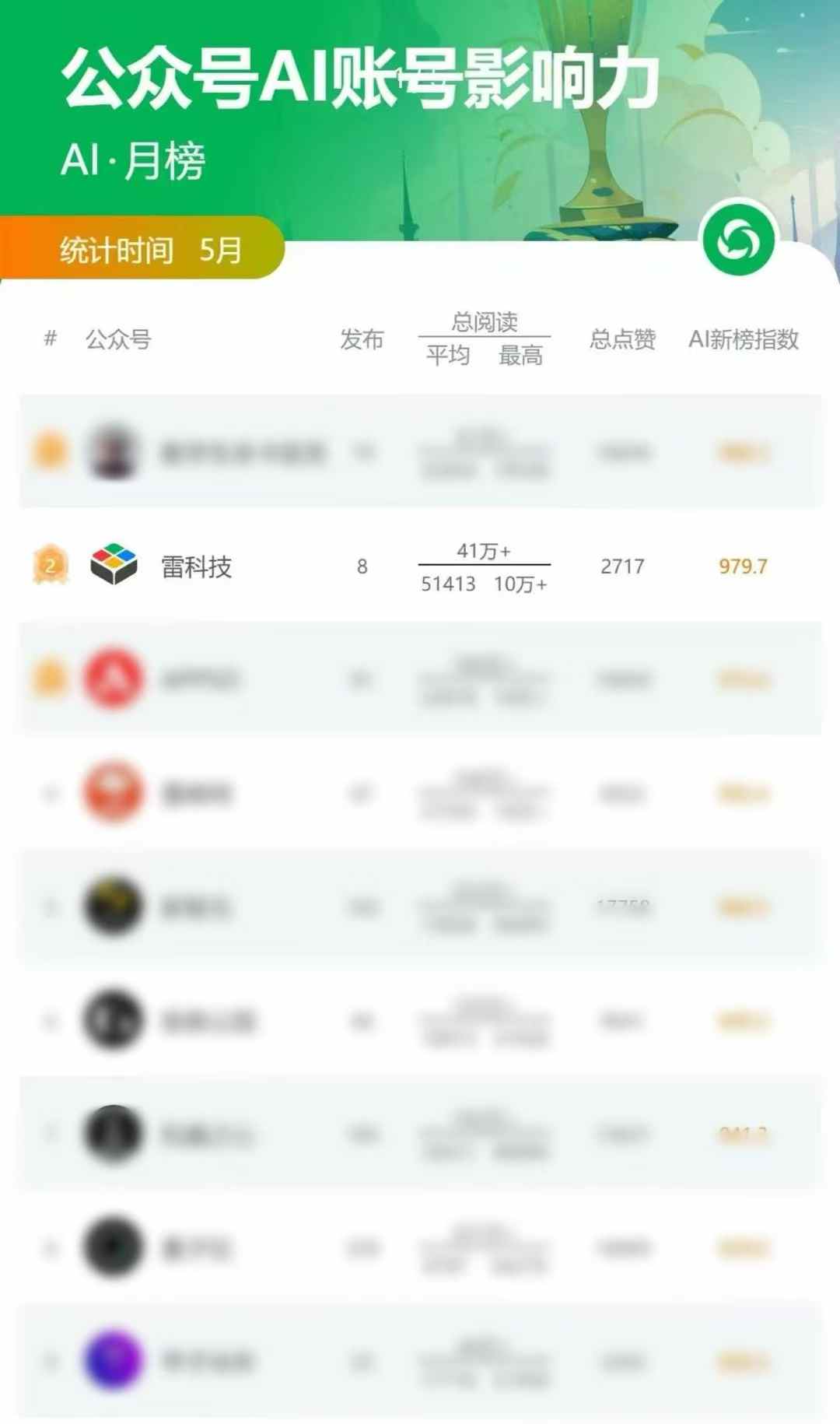
Image/New Ranking Public Account
Unlike the 'Four Dragons of AI Self-media' focusing on AI large model technology reports, Lei Tech emphasizes AI's landing applications. In the first half of the year, Lei Tech produced extensive content on AI phones, PCs, glasses, home appliances, translation, educational hardware, cars, intelligent agents, search, assistants, etc., a significant portion of which were reviews.
"Focus on AI hard technology," continuously record and assist in AI's landing applications - this is Lei Tech's mission.
Evaluating AI with Luo Yonghao
Source: Lei Tech







